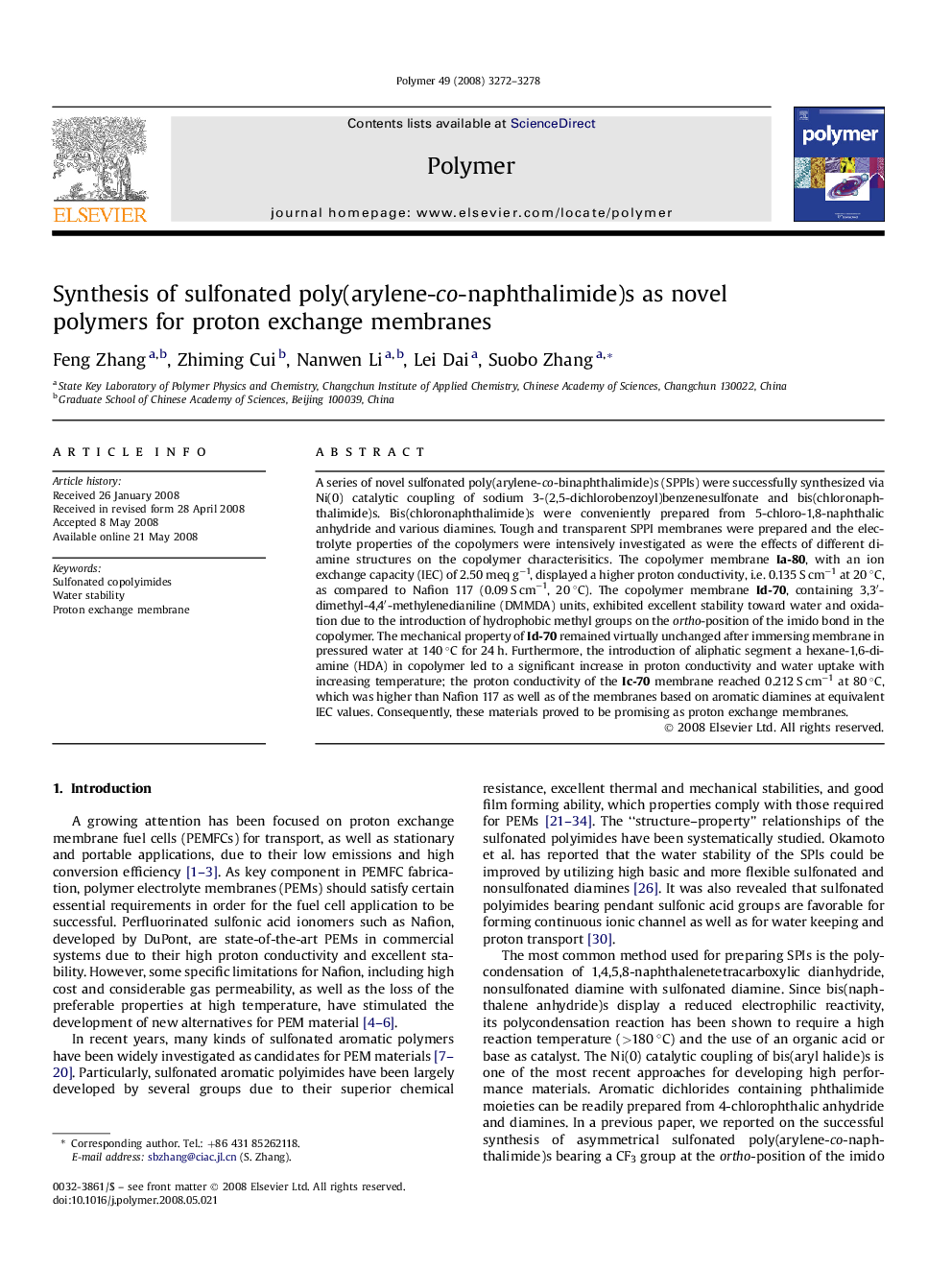| کد مقاله | کد نشریه | سال انتشار | مقاله انگلیسی | نسخه تمام متن |
|---|---|---|---|---|
| 5187275 | 1381125 | 2008 | 7 صفحه PDF | دانلود رایگان |

A series of novel sulfonated poly(arylene-co-binaphthalimide)s (SPPIs) were successfully synthesized via Ni(0) catalytic coupling of sodium 3-(2,5-dichlorobenzoyl)benzenesulfonate and bis(chloronaphthalimide)s. Bis(chloronaphthalimide)s were conveniently prepared from 5-chloro-1,8-naphthalic anhydride and various diamines. Tough and transparent SPPI membranes were prepared and the electrolyte properties of the copolymers were intensively investigated as were the effects of different diamine structures on the copolymer characterisitics. The copolymer membrane Ia-80, with an ion exchange capacity (IEC) of 2.50 meq gâ1, displayed a higher proton conductivity, i.e. 0.135 S cmâ1 at 20 °C, as compared to Nafion 117 (0.09 S cmâ1, 20 °C). The copolymer membrane Id-70, containing 3,3â²-dimethyl-4,4â²-methylenedianiline (DMMDA) units, exhibited excellent stability toward water and oxidation due to the introduction of hydrophobic methyl groups on the ortho-position of the imido bond in the copolymer. The mechanical property of Id-70 remained virtually unchanged after immersing membrane in pressured water at 140 °C for 24 h. Furthermore, the introduction of aliphatic segment a hexane-1,6-diamine (HDA) in copolymer led to a significant increase in proton conductivity and water uptake with increasing temperature; the proton conductivity of the Ic-70 membrane reached 0.212 S cmâ1 at 80 °C, which was higher than Nafion 117 as well as of the membranes based on aromatic diamines at equivalent IEC values. Consequently, these materials proved to be promising as proton exchange membranes.
Journal: Polymer - Volume 49, Issue 15, 7 July 2008, Pages 3272-3278